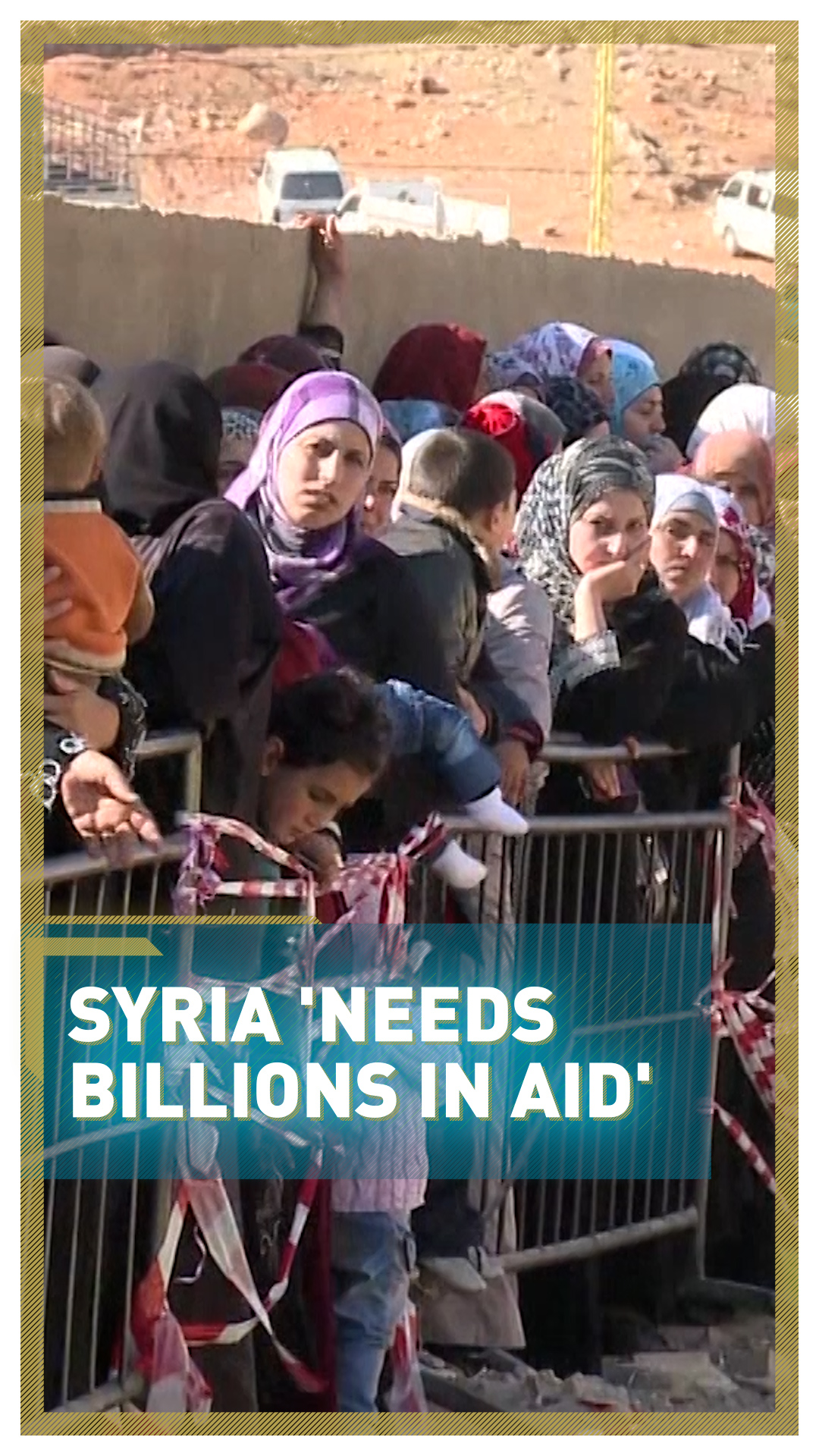03:23

The EU is calling on its member states to pledge billions of dollars in aid for Syria.
Speaking at the annual Brussels V conference – Supporting the future of Syria and the region, Josep Borrell, the High Representative for Foreign Affairs for the European Union Commission, laid out the stark outcome of a decade of war: "The human cost of this conflict is unthinkable, awful. More than 400,000 people have died, perhaps 100,000 more have disappeared, and [there are] over 12 million refugees and internally displaced people.

EU foreign policy chief Josep Borrell listens to a question during an online joint news conference with UN Under-Secretary General for Humanitarian Affairs and Emergency Relief Coordinator Mark Lowcock at the conclusion of the conference 'Supporting the future of Syria and the region'. /Francisco Seco/POOL/AFP
EU foreign policy chief Josep Borrell listens to a question during an online joint news conference with UN Under-Secretary General for Humanitarian Affairs and Emergency Relief Coordinator Mark Lowcock at the conclusion of the conference 'Supporting the future of Syria and the region'. /Francisco Seco/POOL/AFP
Aid agencies are in attendance to present why the money is so important, and how it could help improve the lives of the millions affected.
Many of them are calling for cash to be given directly to struggling families, and some are looking for more investment that helps bolster Syria's economy.
Aline Yacoubian, Emergency food security and vulnerable livelihoods policy officer for Oxfam in Syria, says it's part of a desire to move away from food handouts, and towards a more sustainable economy:
"I remember talking to women in rural Aleppo who said that 'we cannot feed our families for days just because there's been some delay in receiving food parcels because of the movement restrictions', so that's what I'm talking about when I say that families have become heavily reliant on this humanitarian assistance."

A Syrian man walks amid the rubble of a destroyed building following reported Russian air strikes on the outskirts of the rebel-held northwestern city of Idlib, on March 29, 2021. /Abdulaziz KETAZ/AFP
A Syrian man walks amid the rubble of a destroyed building following reported Russian air strikes on the outskirts of the rebel-held northwestern city of Idlib, on March 29, 2021. /Abdulaziz KETAZ/AFP
That's made more difficult with European Union sanctions against the Syrian government, which limits investment in infrastructure until President Bashar al-Assad holds democratic elections.
But Yacoubian insists what they're calling for is very different: "Addressing recovery and resilience needs of the community should not be conflated with the reconstruction of Syria - at all. Early-recovery and resilience is a key component of any humanitarian response and in any other context it would have been a no-brainer after ten years."
The pandemic means Syrians are in need of more funds than in 2020, but the fear is member states will be less willing to give for the same reason.
Cover image: Delil SOULEIMAN/AFP

